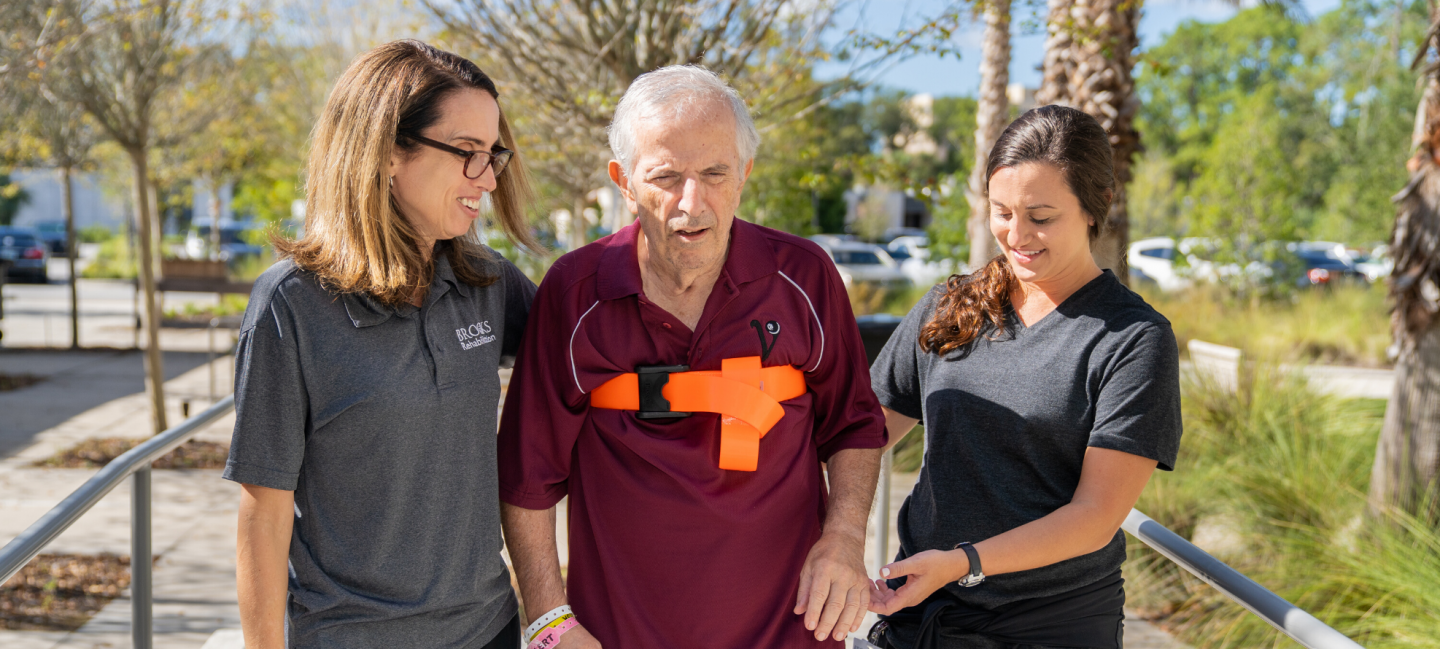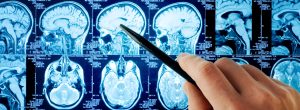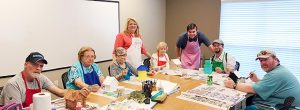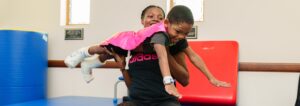Dedicated Neuro Teams Continue Progress in Skilled Nursing Facilities

Back to physical health resource hub
When patients are either not quite ready to go home or if they aren’t able to handle the intensity of therapy at Brooks Rehabilitation Hospital, they may transition to one of Brooks’ two skilled nursing facilities – Bartram Crossing (BC) or University Crossing (UC).
Given the complexity of brain injuries, each facility has a dedicated neurological program team. “At UC, a patient may have fewer therapy sessions a day, but they are generally longer sessions. We try to work on specific patient-centered goals,” said Tanya Doidge, PT, DPT, NCS (neurologic clinical specialist). Often two therapy disciplines will co-treat at the same time.
This allows for a broader range of treatments. Psychosocial interactions are also crucial at this stage of recovery. There are many group activities, including a cognitive group, current events groups and a community re-integration group, to help prepare a patient for discharge.
“I often use group therapies as another outlet to practice skills they are learning. For example, I told a patient with left-side weakness to try playing bingo using only his left hand,” said Doidge.
“Recovery can look different for each patient with a brain injury. The entire team decides when and where the next best place for treatment will be for each person,” said Marie Honaker, PTA, lead therapist of the UC neuro team. Caregiver training and education is also crucial. Patients have undergone a life-changing event, which takes a toll on the entire family. Caregivers can stay with patients to assist and even the family dog is allowed to stop in for a visit. Often patients will cheer each other on and family members become a support system for each other.
“Due to the dramatic nature of life after a brain injury, I find it so rewarding to spend time with each patient and truly celebrate their progress. To see someone relearn skills they lost and start to become the person they were before the brain injury is what motivates me to come to work every day,” said Honaker.


